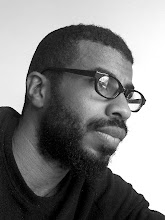June 9th
Well, the show came down yesterday. As it is I had to go to Praia, so I decided to take down the exhibition; safe another day’s trip. The space now empty reminded me of the beginning, when things started and we were the starters. The residency is at an end, the show is down, the thoughts have been exhibited and the discussions—should some have been created—are currently in dialogue. The responses have been positive, for the most part. The Creatives of the land, those who participated with us, seem to have taken what we gave. They have critict, and I am sure critict further in and amongst them. The residency has some establishment, for many of them have said that they may even take their vacations next year around this time, so they may give more time to the residency.
In discussing the promotion of the residency and the activity of it, one has to admit that it went on a positive slant. My goal with the project is to have some interactivity, some form of play and action so there are conversations, information really. There’s a part of the residency which is about education, on both parts. I like the residents to learn from this place, this visible transitions in one of our world’s lands. I always say that this place is magic. The global scope is here for us all to see, and in it we can see how information and interactivity can bring formalities to the creative process of any country. Cape Verde is small, the islands are separated from each other and even further, towns and villages are separated as well; communication happens through the grape vine, although I have to say that mobile phones are sweeping the country; texting is ever increasing and elements that were out of reach just five years ago are closer and more immediate. This too can happen with the arts, the proximity of thought and action can happen in such a place in an interesting way because of the elements mentioned above. We do art not for answers that are understood by all, sometimes it is not even understood by us who make it, but we are a means to many answers. We converse with the problems of our environments and our contributions are always a part of the conversation, as such, introductions of information are essential towards the sustainability of such answers. An overwhelming complaint I have heard since being here is the lack of support for contemporary art, and the lack of understanding by the locals. These words come from local creatives and are reminiscent of complaints on art in almost every part of the world. If this is so, we then have a kind of familiarity when it comes to the understanding of ‘art.’ Are we then not responsible for also infusing such questions in to our practices? Cape Verde should not open its ways to the ‘contemporary’ just because others have, its stubbornness is an essential ingredient in the natural process of change. Doors should not be opened only because some one is knocking, it is he who is knocking that needs to convince to person to open the door. I find that artist often feel like they are privileged, in a position of authority, that they should be a demanded part of our culture and as such entry should be granted. In the West Art history makes this argument for the contemporary artist, it tells her that she is important and that she will be listened to if she has support from those who place art objects in the forefront of cultural acclivity, but though art has depended on such sponsorships to survive as a payable practice, the artist’s role has never depended on it. She creates out of necessity, out of uneasiness and a lack of generalized language to be able to speak her position. So, the artist will always live and has always lived as its own need. In Cape Verde contemporary artist have plugged into the bug that is the ‘art establishment,’ the engine that was created outside of this country that says it (the art and artist) is important and needs listening to, but I say the artist needs to create the space to be listened to. When we relinquish our attitudes of ‘making’ out of uneasiness and ‘showing’ out of impute, when we leave our space of ‘work’ only for our work, then we have failed. We are not owed anything because we work in ways that are visual and a-part of, we are owed when we’ve brought to attention our piece of the conversation—key word here is WE, artist included—and what are we owed is time, just like all the others who are involved in the round table of culture.
Wednesday, June 11, 2008
Subscribe to:
Post Comments (Atom)

No comments:
Post a Comment